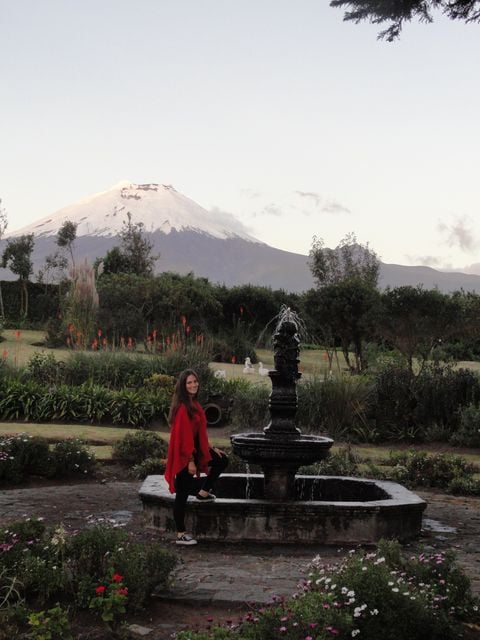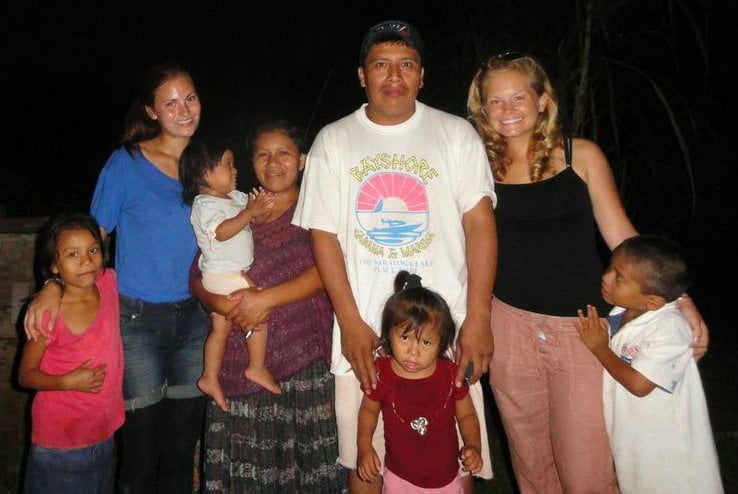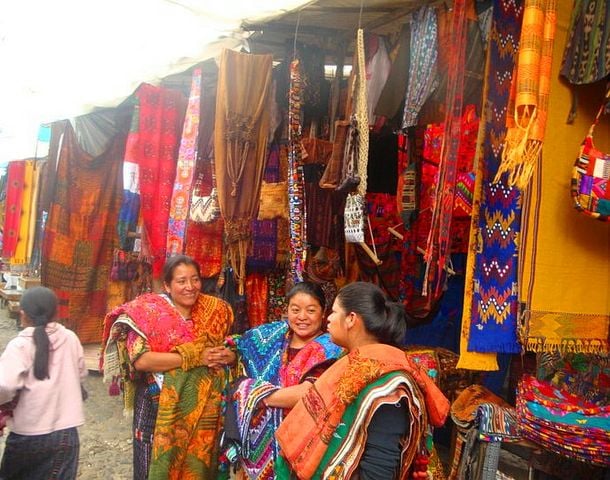
Why did you decide to study abroad with Carpe Diem?
Shayna: I chose Carpe Diem because I firmly believed (and still do believe!) that the trip leaders and program coordinators are truly passionate, committed, and determined to provide me with an experience to grow at my own pace and develop my own, individual identity. Additionally, I felt comfortable, confident, and secure putting myself in the care of Carpe while traveling in the developing world with relation to my health, safety, and personal convictions. I could not envision that I would be able to find a similar program that provided me with college credit options, engaging service work, cultural and linguistic immersion, and an opportunity to cultivate life-long friendships and contentment with solidarity.
Describe your program socially and academically.
Shayna: I vividly remember sitting on the floor of the San Francisco airport in a circle with 13 other strangers. Three months later, those same people became ones with whom I shared memories; they became my life-long friends. Through weekly group meetings and constant self-reflection on our group dynamic, we were able to grow together and confront any conflict directly. We were like links in a chain: if any person or link became loose, for example, I was not a naturally born hiker and found some hikes physically extraneous, my friends would be there at my side encouraging me onward and holding my hand (literally and figuratively) pulling me onward.
Language schools definitely strengthened my Spanish skills and introduced me to new learning methodologies. For example in Xela, Guatemala, my teacher would walk around the city with me to identify new vocabulary words—much better and more effective than memorizing them from a page in a textbook! Additionally, reading books for coursework through Portland State University was enlightening, but seeing the way in which the economy functions, the social sphere is stratified, and the politics influence the culture first hand allowed what I was learning to become an experience with meaning and connection.

Tell us about any interesting cultural tidbits you noticed about your countries.
Shayna: Spanish as a language changes across border lines! “Plataninas” might be fried plantains in Guatemala, but in Ecuador people will call you crazy unless you refer to them as “chifles.”
I am a vegan-celiac, which might sound like a but of a restricted diet, but traveling in Latin America was never difficult when it comes to eating! Beans, corns, and plenty of fresh fruit and vegetables will certainly keep any vegetarian happy. Embrace a stack of hot tortillas wrapped in a blanket with every meal in Guatemala, because in Ecuador, tortillas will be a cheesy, oily, corn cake.
Women, at least in rural areas, might not be viewed as equal to men, but don’t be afraid to challenge that stereotype. I remember one time in Guatemala when our bus broke down because the roadway got flooded. Our group, which was primarily female, got outside, rolled up our pants, and pushed the bus through the water to the amazement of the surrounding men.
Trust in the beauty of mankind. While many might be scared to trust others, especially in the developing world, many of the people you interact with on projects, and even in cities, will genuinely want to help you as a foreigner volunteering abroad. I remember being in Ecuador and traveling independently after competing my internship and an old woman helped me when I was lost at a “terminal,” i.e. an open highway. A month later upon traveling through the same city, I saw her in the same spot and we embraced.

If you could do-over one thing, what would it be?
Shayna: ABSOLUTELY NOTHING! One thing my trip leaders taught me was that the past is history, the future a mystery, and the present a gift. Heeding their advice to this day, I look back on the past only in relation to how it brought me to the place where I am in my life now. Without my Carpe Diem semester on a group trip through Central America and an independent internship in Ecuador, I would never be pursuing the same course of study in university, have a broadened horizon to people all over the world, stay true to myself every day, and be stricken with travel fever and a passion for exploration.
I was forced out of my comfortzone, and because of this I branched out and made some incredible friends that I absolutely cherish. I succeeded in my personal challenge to put myself out there and meet as many new people as possible, and in the process I made some great friends. I credit my time abroad with IES for providing the opportunity to accomplish a personal challenge of mine.